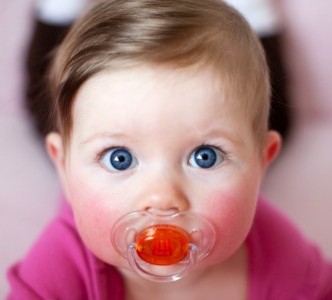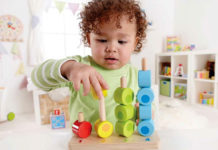Analysis of pacifiers used in infants has led to the conclusion that they can get dirty and very dirty indeed.
This research was done at the Oklahoma State University by Dr. Tom Glass.
The effect of this is however debatable and the findings have been published in the annual meeting at the American Society for Clinical Pathology, Boston.
 Pathological and Microscopic Analysis of Pacifiers
Pathological and Microscopic Analysis of Pacifiers
Pacifiers used by infants were collected from various sources by the researchers and they were analyzed in the laboratory for the presence of disease-causing microbes such as bacteria, fungi and mold. Results showed that generally, a slimy coat – biofilm is formed on the pacifier which consists of bacterial colonies.
This biofilm is said to alter the number and type of normal micro flora in the infant’s mouth. This imbalance can induce inflammation of the ear, nose and throat or gastrointestinal problems like colic.
The study involved investigation of 10 pacifiers from healthy infants who visited a pediatric clinic. For the analysis the nipples and the shields were chopped finely and added to nutrient media in laboratory plates.
These nutrient media were of different types and made the growth of specific bacteria possible if they were present in the pacifier samples. The plates were incubated for 24 to 48 hours and the results were recorded based on growth or no growth. The control plates contained fresh unused pacifiers.
Results showed that half of the used pacifiers – 5 were heavily contaminated (greater than 100 million CFU/gm). More than 40 species of bacteria could be cultured from the 10 pacifiers. One of them even had Staphylococcus aureus. Unused pacifiers also caused growth, but very less (less than 100 CFU/gm) and hence qualified as sanitary.
But the matter that caused more concern was that many of the bacteria growing out of used pacifiers were resistant to common antibiotics such as penicillin. This means that in the event of an infection, the infant will be more difficult to treat.
Conclusion
Lead author of the study, Dr. Glass has advised parents against taking risk with the pacifiers. But for those who still find pacifiers indispensible, he recommends that they be soaked in a denture-cleanser every day and doing away with soiled and overused ones. Old pacifiers should be replaced with new every two weeks.








